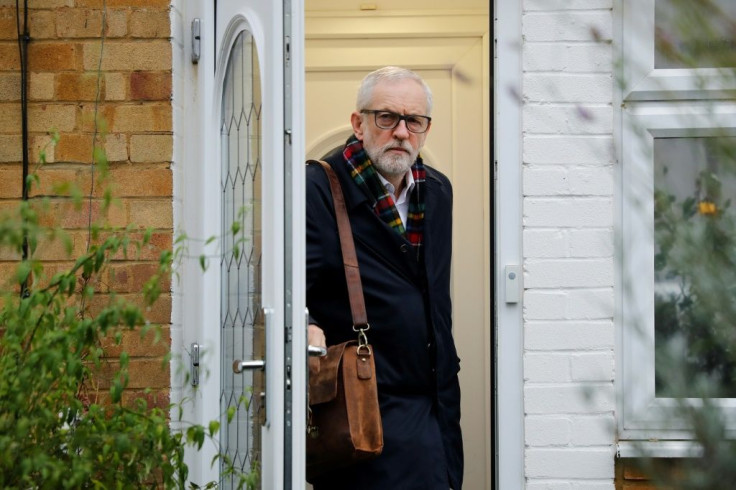Race Starts To Replace UK Labour Leader Corbyn

Britain's Labour Party on Monday began the formal contest to replace its leader, with centrists set to battle left-wingers in a fight for its ideological soul.
Veteran socialist Jeremy Corbyn announced he would step down following last month's crushing defeat to Prime Minister Boris Johnson's Conservatives.
Labour, a traditionally centre-left party, had moved further left under Corbyn, and haemorrhaged support across its former heartlands to hand Johnson a landslide victory.
The party's National Executive Committee (NEC) met to thrash out a timetable and procedures for the leadership contest -- its fourth since Labour last held power in 2010.
Nominations open on Tuesday and close in a week. Voting will take place from February 21 to April 2, with the winner announced two days later.
An unofficial campaign has been under way for weeks, with several so-called moderate candidates already declared.
They include the early favourite Keir Starmer, the party's Brexit spokesman; foreign affairs spokeswoman Emily Thornberry; shadow finance minister Clive Lewis; and backbenchers Lisa Nandy and Jess Phillips.
They are likely to face off in a highly-charged contest against Corbyn loyalists Rebecca Long Bailey, and party chairman Ian Lavery, a former trade union leader.
Both have signalled their intent to stand.
"They could hardly fail to be an improvement on Corbyn," said historian Kenneth O. Morgan, who has written several books on Labour and its leaders, and branded Corbyn's tenure a "disaster".
"The party will have to do something quite fundamental and the first important thing is to get a decent leader," he added.
Under current rules, contenders need the backing of 21 Labour MPs as well as at least five percent of local constituency parties or three affiliated bodies, such as trade unions.
A separate election for deputy leader is being held at the same time.
The battle to succeed Corbyn is seen as a critical moment for the party to determine whether it steers towards a more centrist course or sticks with his socialist agenda.
Corbyn unexpectedly won a longshot leadership bid in 2015 amid a flood of new members, and set about remaking Labour with an agenda of nationalisations and higher taxes for big earners.
He also instituted internal reforms widely seen as trying to cement left-wingers' control of the party, installing loyalists on the ruling NEC.
But his hardline policies have twice failed to win a majority at the ballot box, leading to calls for Labour to regain the centre ground.
"After its worst defeat for 80 or 90 years the Labour Party, and with it the shape of progressive politics in the UK, faces some existential questions," ex-premier Tony Blair, who won three elections as Labour leader, said in a new year's message.
But Corbyn's defenders -- and hopeful successors -- argue his policies are actually popular with voters, and blame Brexit and poor messaging for the defeats.
"We didn't lose because of our commitment to... invest in public services or abolish tuition fees," Long Bailey wrote in The Guardian last month, touting her working-class roots.
The daughter of a docker from Manchester, northwest England, the 40-year-old believes she can win back disaffected voters, while maintaining the backing of Corbyn's supporters.
Starmer, 57, a former director of public prosecutions and shadow Brexit minister for three years, is less well-liked by so-called "Corbynistas".
Popular among the anti-Brexit and moderate factions of the party, he would represent a shift back towards the ideological centre ground if elected.
A YouGov poll of Labour members released last week showed 36 percent backed him as their top preference, 13 points ahead of Long Bailey.
Phillips, a canny media operator and one of the party's most visible MPs on Twitter who has been highly critical of Corbyn, was in third place on 12 percent, according to the survey.
Meanwhile Nandy, a native northerner who presents herself as the champion of the working-class areas that turned Tory in the election, was among the rest in single figures.
However, the contest is seen as highly unpredictable.
Labour uses a preferential voting system, with its approximately 500,000 party and affiliated members able to rank candidates in order of preference.
The NEC must also decide how long the race will last and any cut-off periods for membership.
Corbyn critics are thought to favour a long period of several weeks to allow as many new members as possible to sign up and be able to vote.
© Copyright AFP {{Year}}. All rights reserved.





















